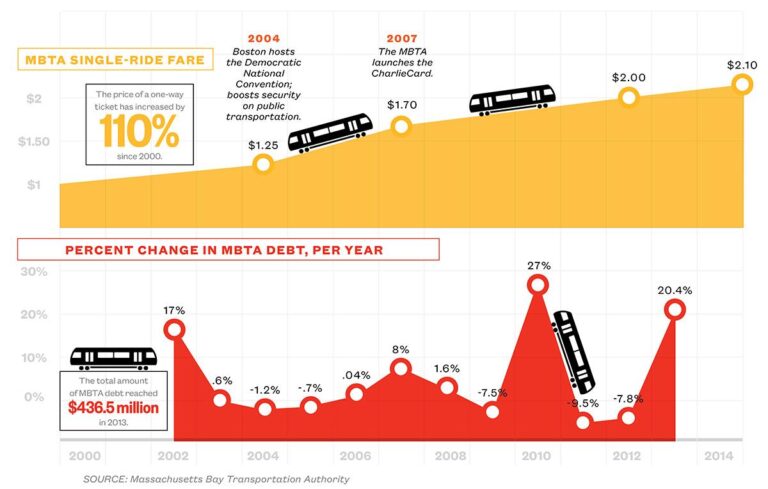Public hearings have been scheduled to gather public feedback on the proposed fare increases by the Massachusetts Bay Transportation Authority (MBTA). The agency aims to address budget shortfalls and enhance service efficiency, prompting officials to seek input from riders and stakeholders.These hearings will provide a forum for the community to discuss the potential impact of fare adjustments and explore alternative solutions ahead of any final decisions.
Table of Contents
- Public Hearings Announced to Address MBTA Fare Increase Proposals
- Community Concerns and Economic Impact of Proposed MBTA Fare Hikes
- Expert Analysis on Potential Effects of Fare Adjustments on Ridership
- Recommendations for Equitable and Sustainable MBTA Fare Structures
- In Summary
Public Hearings Announced to Address MBTA Fare Increase Proposals
The Massachusetts Bay Transportation Authority (MBTA) has officially announced upcoming public hearings aimed at discussing the proposed fare increases set to take effect later this year. These sessions will provide a platform for riders, community leaders, and stakeholders to voice their opinions and concerns regarding the adjustments. Officials emphasize the importance of public input in shaping final decisions that balance operational sustainability with affordability. Key topics scheduled for discussion include:
- New fare rates for subway, bus, and commuter rail services
- Impact on low-income and senior riders
- Options for fare capping and discount programs
- Future infrastructure investments supported by fare revenue
These hearings are part of a broader MBTA initiative to enhance openness and responsiveness in fare policy decision-making. All sessions will be conducted both in-person and virtually to maximize accessibility,with schedules and registration details available on the MBTA website. Commuters and residents are encouraged to participate actively, providing testimony that will directly influence the fare policy framework moving forward. The MBTA stresses that this collaborative approach aims to ensure a fare system that is equitable and supports the transit network’s long-term viability.
Community Concerns and Economic Impact of Proposed MBTA Fare Hikes
Local residents and daily commuters have voiced growing apprehensions regarding the proposed MBTA fare hikes, emphasizing the disproportionate impact on low-income communities and essential workers. Many argue that increased fares could exacerbate financial strain, potentially limiting access to reliable transportation for those who depend on the MBTA for work, education, and healthcare. Concerns also extend to the ripple effect on local businesses, as reduced ridership might decrease customer traffic and overall economic activity in surrounding areas.
Experts warn that the fare adjustments could have broader economic consequences, including:
- Increased household transportation costs, contributing to higher living expenses
- Potential rise in traffic congestion and environmental impact, as some riders may shift to private vehicles
- Challenges for workforce mobility that could affect regional employment rates and productivity
Community advocates are urging the MBTA to consider phased implementations or alternative revenue solutions to mitigate these risks while maintaining service quality.
Expert Analysis on Potential Effects of Fare Adjustments on Ridership
Transportation economists warn that fare increases could trigger a measurable decline in ridership, particularly among low-income and occasional riders who are more sensitive to price hikes. The elasticity of demand in public transit often results in a proportional drop in usage as costs rise, potentially undermining efforts to boost sustainable mobility. Experts emphasize that while the MBTA requires additional revenue to maintain infrastructure and service quality, these increases risk pushing discretionary riders towards alternative transportation modes, such as ridesharing or personal vehicles.
Analysts highlight critical factors that will influence the net impact on ridership, including:
- Frequency and magnitude of fare hikes – Gradual, moderate adjustments may soften ridership loss compared to abrupt, steep increases.
- Service reliability improvements – Enhancements could offset rider resistance by adding value to transit use.
- Availability of discounted passes – Maintaining or expanding concessionary options may protect vulnerable groups from disproportionate burden.
- External economic conditions – Employment rates and fuel prices also play a significant role in transit demand fluctuations.
Recommendations for Equitable and Sustainable MBTA Fare Structures
To foster fairness and long-term viability, recommendations emphasize implementing a tiered fare system that adjusts rates based on income levels, ensuring low-income riders are not disproportionately burdened. Advocates also call for expanded discounts for seniors, students, and persons with disabilities, alongside increased investment in seamless transfer policies between modes to reduce overall commute costs. Sustainable funding models should include integrating fare revenue with state subsidies earmarked for public transit equity and environmental objectives.
Additional proposals urge the MBTA to incorporate technological solutions for greater fare flexibility and accessibility, such as contactless payments and real-time fare capping. These enhancements are expected to streamline rider experience and reduce barriers to access.Key recommendations include:
- Introducing monthly and weekly fare caps to limit total expenditure for frequent users
- Offering discounted passes for essential workers and low-income families
- Increasing outreach and public engagement for ongoing adjustments based on rider feedback
- Prioritizing investments in cleaner, energy-efficient transit solutions aligned with fare policy shifts
In Summary
Public feedback will be crucial as the MBTA moves forward with its fare adjustment plans. Stakeholders and riders alike are encouraged to participate in the upcoming public hearings to voice their opinions and concerns. These sessions represent a vital step in ensuring that fare changes reflect the needs and realities of the community. Further details on the hearing dates and locations are available on the MBTA website.

